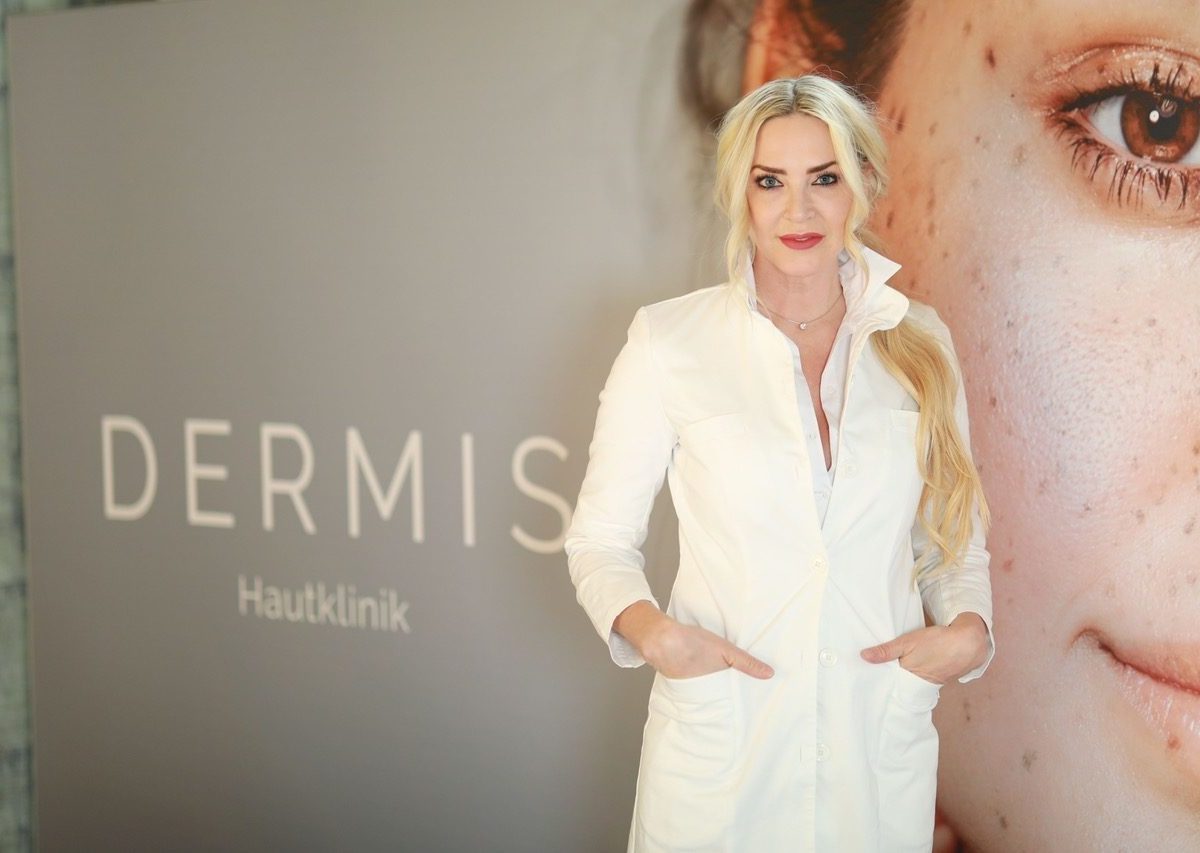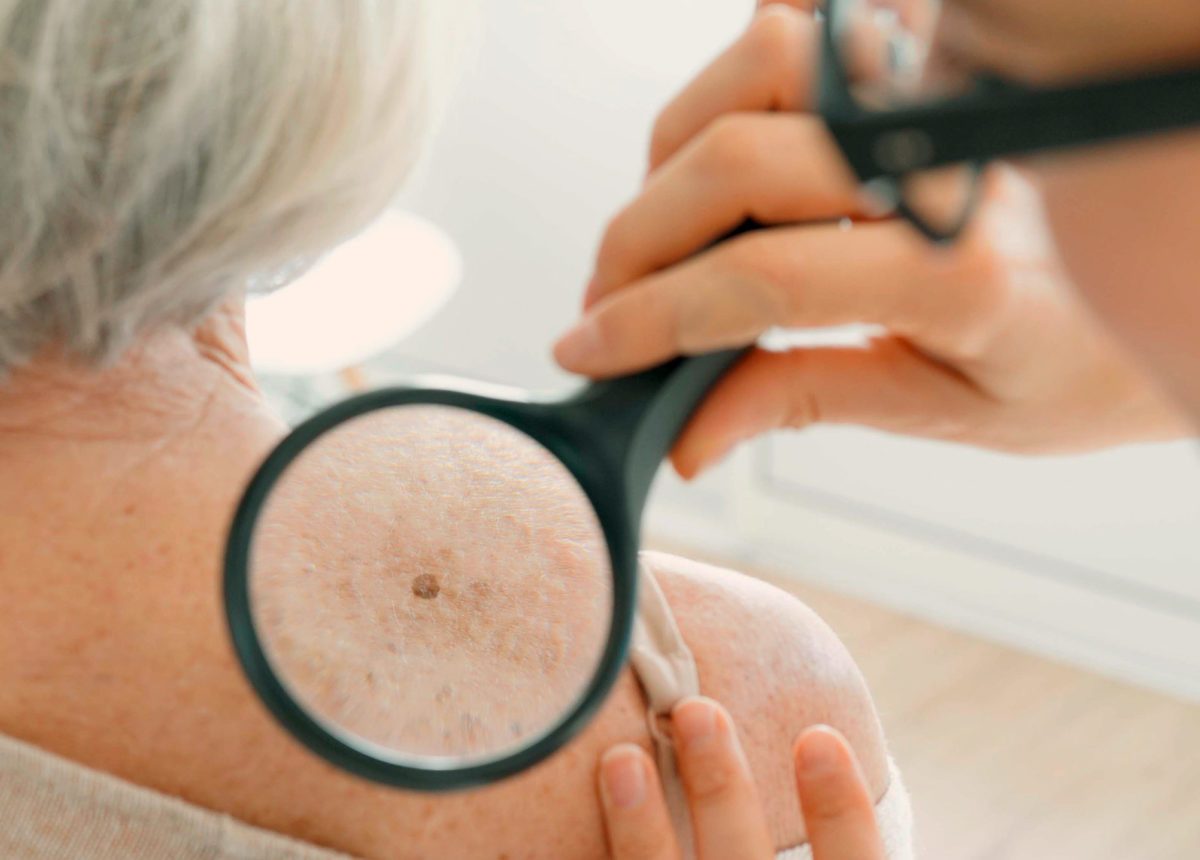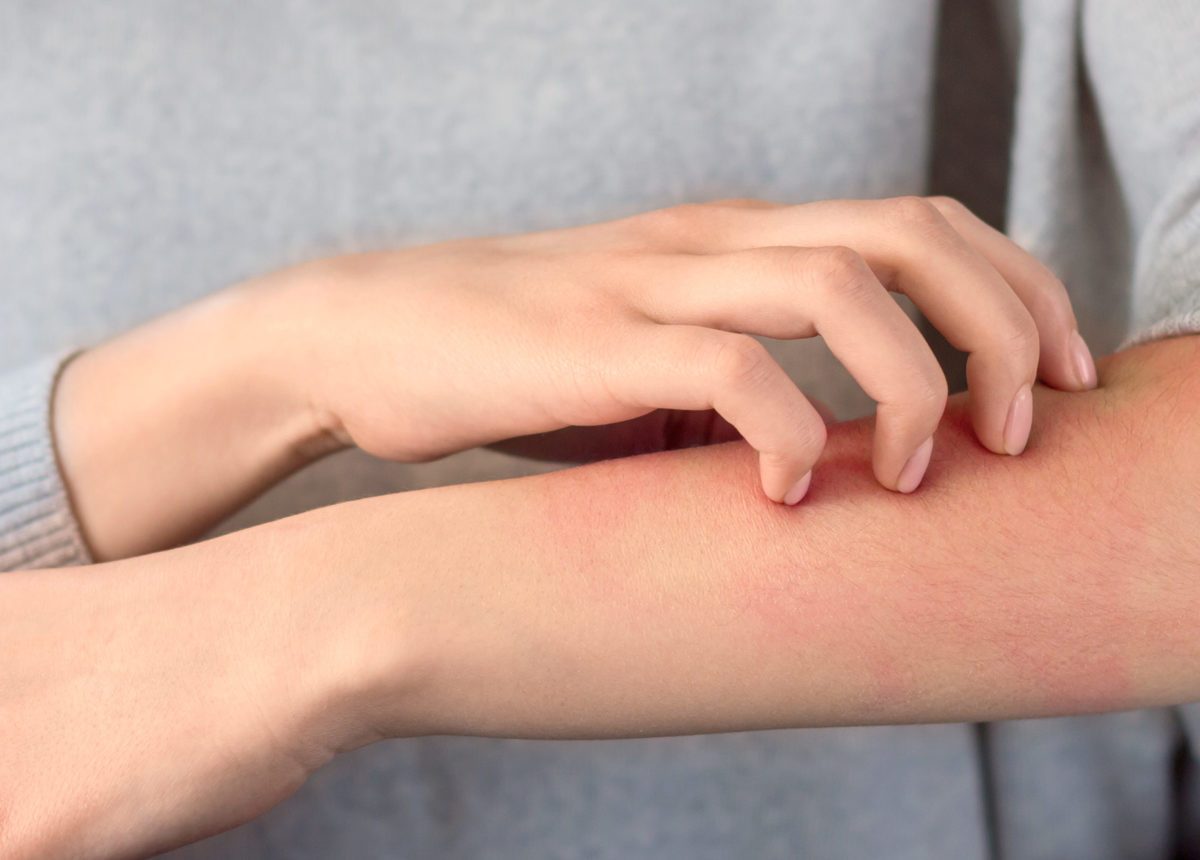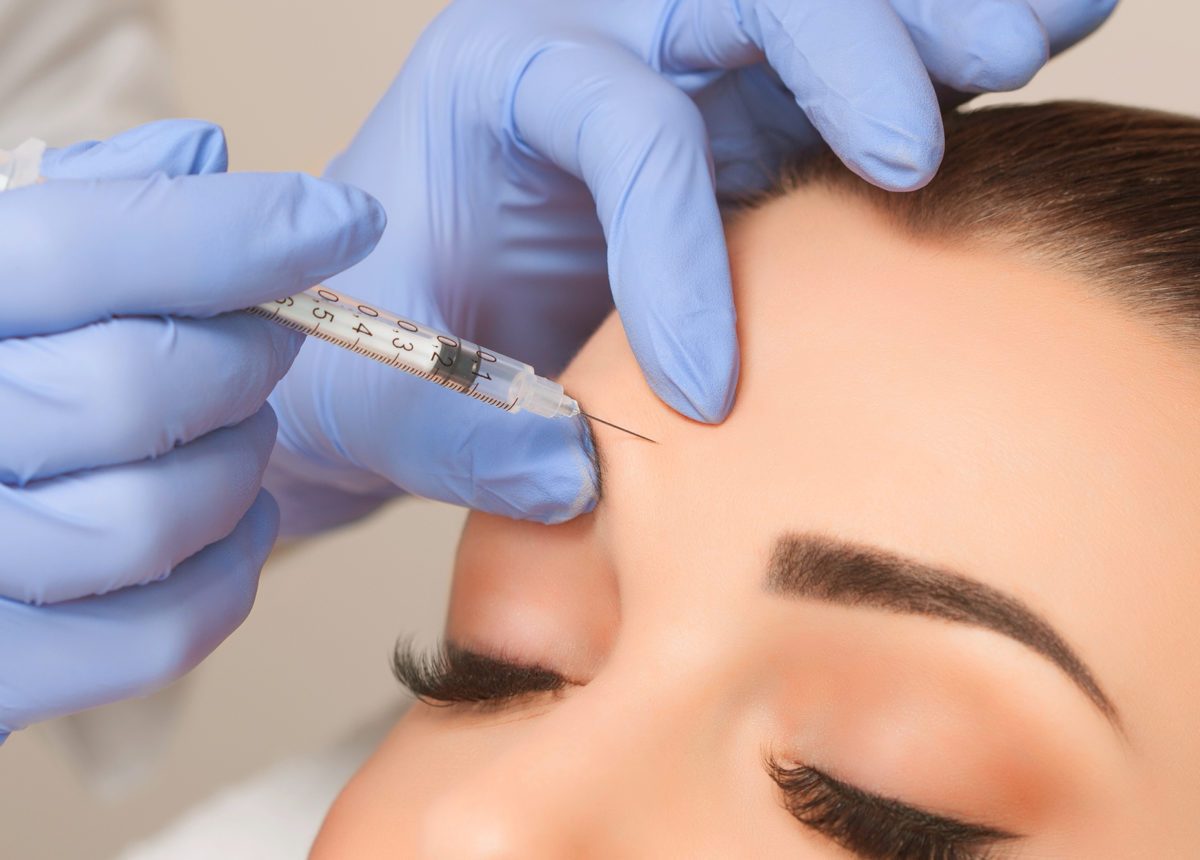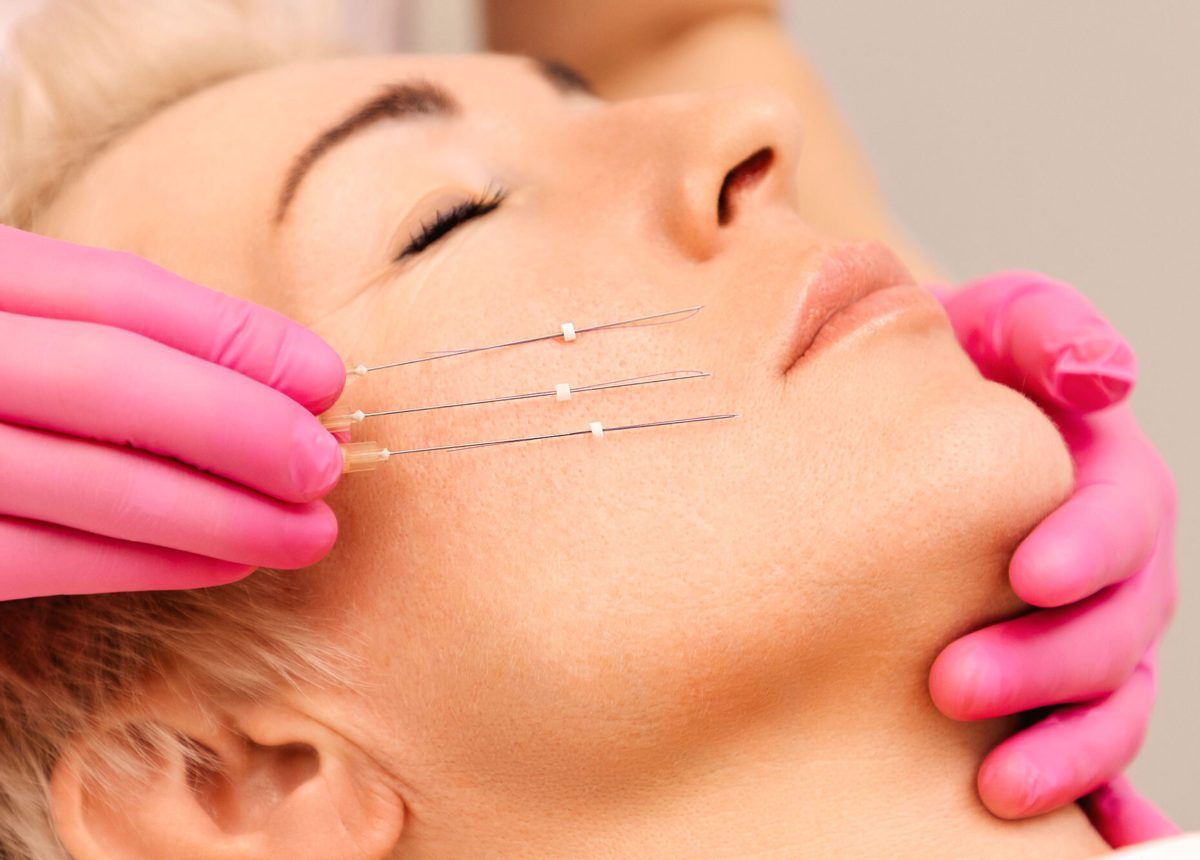If skin cancer is detected early, it is almost always curable
Sabine Bruckert interviewed by Annabelle
This makes it all the more important to be aware of skin changes and have them checked. Dr Sabine Bruckert is a dermatologist at the Dermis Dermatology Clinic Zurich-Bülach, and a senior physician at the Dermatology Clinic at University Hospital Zurich.

What are the first warning signs that may indicate skin cancer?
Skin cancer is generally something that changes on the body. That is why I recommend regular self-examinations of the skin. Non-melanoma skin cancer is particularly insidious because it is difficult for the layperson to recognise and sometimes only shows itself in the form of a scaly spot, nodular changes in the skin or a wound that does not heal. This form of skin cancer can manifest in a variety of colours – from light red to dark brown. In the case of melanoma skin cancer, a mole may change conspicuously or an anomaly may appear that looks like a mole but behaves differently.
Non-melanoma skin cancer can be treated well and very rarely metastasises. In contrast to melanoma…
If melanoma skin cancer is detected early on, it is also very treatable. The emphasis here is, however, on the word early! Because even from a penetration depth of one millimetre, there is a risk that the melanoma skin cancer has made contact with blood vessels and that there can be offshoots.

How often should I have my skin checked by a dermatologist?
There is no one-size-fits-all answer to this question. The intervals between examinations depend largely on a patient’s skin type, family and personal history and the number of moles they have. Some people are at a higher risk of skin cancer. These include people with a fair skin type and those who have a family history of skin cancer. Young people should also be sure to get checked, as about 26 percent of patients are younger than 50 at the time of diagnosis.
What happens if a conspicuous pigment change is actually found?
In the case of both non-melanoma and melanoma skin cancer, we take a tissue sample. If melanoma skin cancer is suspected, we fully excise the area, if possible, and have the sample examined. In the case of non-melanoma skin cancer, the course of treatment depends on the thickness of the tumour. For thin tumours, local therapies such as creams or photodynamic procedures can be used. Surgery is the first choice for thicker tumours. In the case of melanoma skin cancer, the thickness is also decisive. A melanoma is always removed surgically! Depending on the depth of penetration, lymph nodes must also be removed and examined.
New chemotherapies have shown great success in treating melanoma. These have a targeted immunomodulating effect and activate the immune system in such a way that it is directed against the cancer cells.
Finally, a question about skin cancer prevention. What do you recommend to your patients?
If possible, avoid UV radiation from the sun. It ages our skin prematurely and can cause skin cancer. Our clothing offers good protection, and in addition we should wear headgear and large sunglasses. It is also advisable to apply a high quality sunscreen with a high sun protection factor (SFP) daily. If you have any medical doubts, you should always consult a specialist.

Dermatology Clinic Zurich Bülach – Dermatology Clinic Bad Ragaz – Medical Beauty Zurich Bülach – Dermatology Clinic Zurich Seefeld – Dermatology Clinic Davos
Sabine Bruckert, MD, founded the Dermis Dermatology Clinic near Bülach railway station 10 years ago. Today, she and her team of 50 experts offer the entire spectrum of dermatology, dermatosurgery, aesthetic medicine and medical cosmetics.
From birthmark control, acne problems, inflammatory skin diseases (for example psoriasis) to reconstructive operations after tumour removal (skin cancer), aesthetic operations, aesthetic dermatology or various laser applications – the proven and experienced specialists take care of every dermatological problem and advise with passion and great experience. With its own operating theatres, procedures can be performed on an outpatient basis at the skin clinic.
As one of the few “C-clinics” (C means certified training centre) in Switzerland, the Dermis Dermatology Clinic trains several assistant doctors every year. They are familiarised with the conscientious and attentive philosophy of the Dermis Clinic. At the DERMIS DERMATOLOGY CLINIC, empathy is a top priority, as is the endeavour to fulfil the patients’ wishes as gently and minimally invasively as possible.
